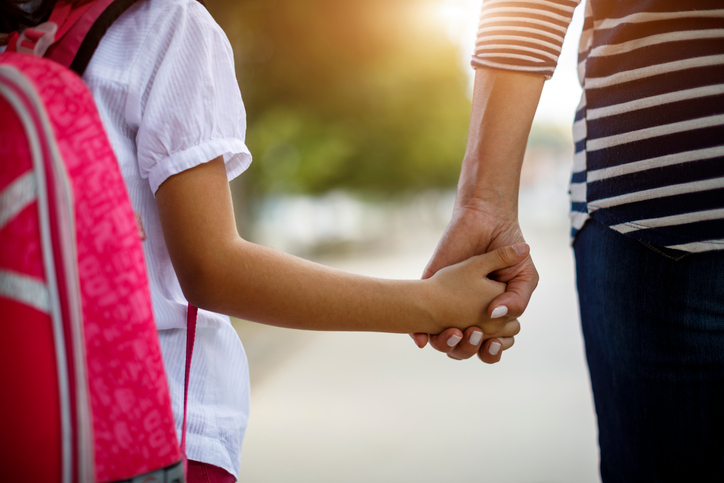“I just had a heart attack.”
My son spoke loudly, his skin paler than usual, except for the blush of exertion on his cheeks beneath a sheen of sweat. He was out of breath as he yanked open the door of the car I waited in for him and his sister after school, tossing his bag to the floor mat. I closed the book I was reading.
“What happened?”
He stood for a moment, one hand gripping the passenger side headrest and the other folded over the top of the open door, sunshine making strands of his golden hair sparkle in contrast to the shadowed, faraway look in his eyes. He shook his head, inhaled, blew out a breath, slid into the seat next to me, and slammed the door shut.
In the privacy of my midsize SUV, he told me that he and a bunch of other students were in a stairwell after last period when there was a deafening bang. Kids screamed. Some dropped to the floor. Others ran to the doors. Finally, someone called out, “It was just a balloon! A balloon popped!”
But in the echo chamber of a three-story stairwell, it was easily mistaken for another kind of pop.
I took his hand and agreed that must have been so scary. I let him release an exasperated, “I really thought it was a gunshot. I really did. I wasn’t the only one. My heart stopped.” His other hand absently rubbed against his breastbone as his younger sister climbed into the backseat, always trailing a few minutes behind him due to preferring a chat with friends at her locker over hustling to my car right away.
He greeted her by asking whether she heard the bang, too, but her last class was on the main floor. She understood the fear still lingering in his eyes, and reached over the seat to touch his shoulder before sitting back into her own to buckle up. My audience was captive. I knew what had to be done.
“What, exactly, did you do when you thought you heard a gunshot?”
And so started another conversation about what to do if someone starts shooting while you’re in school. That wasn’t the only conversation about awful things we talked about that week. There seems to be a constant rotation of topics we cycle through more frequently than I had expected we would at this age.
I have two middle schoolers, and I want them to live with a balance of eyes open to the dangers of this world, a preparedness to deal with them, empathy for those who have dealt with them, and hope that they won’t ever have to deal with them. I figured we’d have talks every now and again about the hard stuff—school shootings, sexual assault, suicide, child abuse, hurt people hurting people, powerful people trying to take away rights from those without power, mental illness—but am finding my reality is that we cover many of these topics every week. Sometimes more than one a day.
Maybe I was naive to think typical conversations with my kids during car rides, breakfasts, playing basketball in the driveway, homework sessions, and paused movies wouldn’t be about how to get out of the way of a classmate’s bullets, how to break away from the grip of a bully, how to notice a suicidal peer, how to hurt the person trying to rape you so you can get away, how to be an ally when someone else is being targeted, how to get out of the most awful situations that can come up without notice. While I am grateful for their school’s regular active shooter drills, their own interest in better understanding the news they hear from radio, TV, and lunchroom chatter, and their willingness to speak frankly about things that were never even mentioned to me when I was their age, I thought there’d be a lot more down time in between these topics. A respite for my heart after hearing things like my daughter repeating instructions on how to escape sexual assault, and respite for the part of my brain that tries not to process the odds that some of these things will happen to the loves of my life.
Alas, there is no respite. I have come to terms with that. It wasn’t quick, the acceptance, but I highly value the importance of taking care of oneself and others. I know from experience that when bad things happen, a second’s hesitation can make a big difference. The shock of processing what is happening to you when no one told you it was possible or how to handle it can make you even more vulnerable. The practical side of my brain respects that these ongoing conversations, the regular reviews of what to do, will keep my kids from being dangerously naive, maybe even keep them safer. It reminds me that is a good thing that I am willing to talk with them so frequently about the awful things, and that they are willing to listen.
For one day it might not be “just a balloon.”








